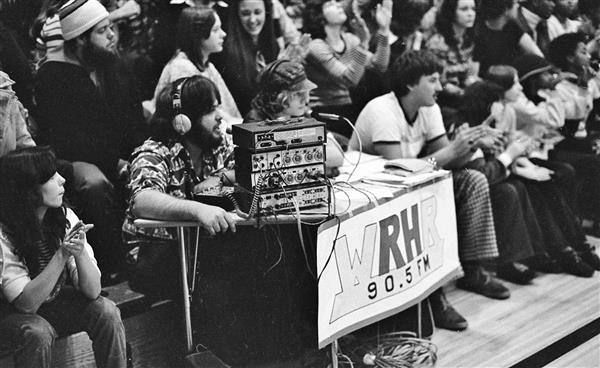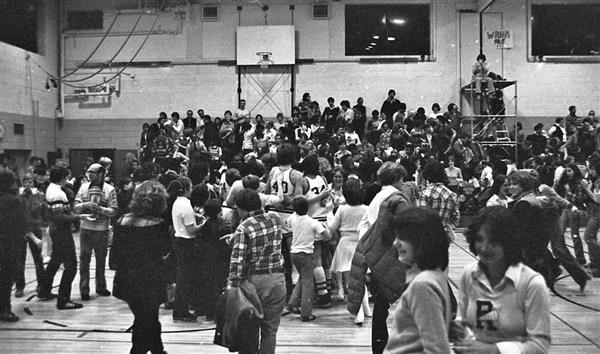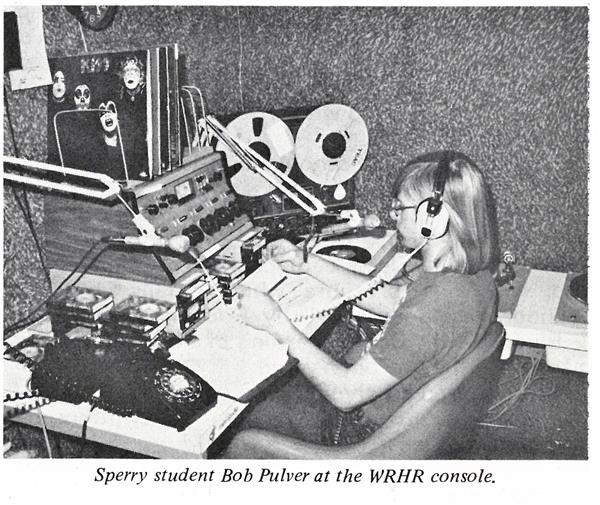- Home
- District Information
- District History
- 75th Anniversary
District Information
Page Navigation
-
District Information
- BoardDocs
- District APPR Information
-
District History
-
75th Anniversary
-
Anniversary Posts 1-15
- 1: Monroe Academy: Henrietta’s First Famous School
- 2: First Schools: Uphill, Barefoot, Both Ways
- 3: 1938: Voters Reject Creation of Rush-Henrietta Central School District
- 4: Schoolhouse Records Give Glimpse of Life 100 Years Ago
- 5: 1946: Given Second Chance, Voters Embrace New District
- 6: A Different Time: When Rush Had More Kids Than Henrietta
- 7: Choosing a Mascot: Why We're Not the Royal Falcons
- 8: Meet the Board: Rush-Henrietta’s Original Fab Five
- 9: Late 1940s: The Beginning of a Population Explosion
- 10: Breaking Ground: Rush-Henrietta’s First New School
- 11: 1952: R-H’s First New School a ‘Splendid Dream’
- 12: First Meeting of the New Board of Education
- 13: 1959 R-H Grad Still Gets on the Bus Every Day
- 14: Humble Beginnings: Two School Buses to Start
- 15: 1954: Sudden Need for a Second New School
-
Anniversary Posts 16-30
- 16: 1954-1955: Two Votes for a Second School
- 17: The Story of Gillette Elementary School
- 18: 1950s: Building a New School Each Year
- 19: 1957: Residents Press Pause, Reject Two New Schools
- 20: 1958: Fourth New School Helps District Keep Pace
- 21: 1950s: Curious Visitors Flock to New R-H School
- 22: Bill Farrell: ‘Architect of the R-H Sports Program’
- 23: 1961: Rush-Henrietta Gets a Junior High School
- 24: 1963: A New School Called Wedgewood
- 25: Elmer Gordon: A Rush-Henrietta Trailblazer
- 26: Remembering Jack Gaffney
- 27: Jack Gaffney's Incredible Connections to Our R-H Past
- 28: Remembering Wilma Jean Milhouse
- 29: 1964: West Henrietta Gets Its First New School
- 30: 1965: Fyle Elementary Named to Honor Respected Teacher
-
Anniversary Posts 31-45
- 31: R-H Family History Revealed in Historic Records
- 32: Dr. John W. Parker: Devoted to District’s Early Success
- 33: 1966: Amidst Housing Boom, R-H Opens Sherman Elementary
- 34: 1968: Rush-Henrietta Opens Its First High School
- 35: Richard TenHaken: Superintendent Who Looked Controversy in the Eye
- 36: 1970: Vollmer Becomes R-H’s Last New School
- 37: The Dome Arena: R-H and Other Legends
- 38: The Lion in the Room - Senior High School Pride
- 39: Artists in Residence
- 40: Providing an Even Start
- 41: Paul McKee: Humility Meets Great Success
- 42: Raymond Delaney Had ‘Unshakeable Belief’ in Public Education
- 43: Roger Eckers Strikes Up the Band
- 44: 1982: R-H Denies West Brighton Request to Secede
- 45: George DesMarteau: One - Make That Two - of a Kind
-
Anniversary Posts 46-60
- 46: Recognizing 75 Years of Music Excellence
- 47: Senior High School Mural Depicts 'Community of School'
- 48: 2006: Rush-Henrietta Alumni Council Established
- 49: A Bird's-Eye View of 1951
- 50: 1945: Preparing for the First Day of School
- 51: R-H is Where ‘The Rock’ Calls Home
- 52: 1974: Rush-Henrietta Takes to the Airwaves
- 53: Glory Years of WRHR: A Student’s Perspective
- 54: 1969: R-H a Trailblazer in Embracing Student Voice
- 55: 1975: Rush-Henrietta’s High School Reaches Capacity
- 56: 1975 to 1986: A Decade of Dual High Schools
- 57: 1987: New High School Name Helps Community Heal
- 58: How We Became the Royal Comets
- 59: Extracurricular Highlights
- 60: Spotlight on Bob Sagan, Act I
- 61: Spotlight on Bob Sagan, Act II
- 62: 1991: R-H Hires First New Superintendent in 20 Years
- 63: Werner Kleemann: More Than a Sports Legend
- 64: 2000: R-H Loses ‘Wonderful Mentor’
- 65: 2000: R-H Legend Returns to Stabilize High School
- 66: A Surprise Boost for Student Athletes and Musicians
- 67: Adventures of Ping: Restoring a One-of-a-Kind Painting
- 68: Dr. Ken Graham: Two Decades of Strong Leadership
- 69: R-H’s History of Putting Safety First
- 70: Girls Basketball Team Becomes Stuff of Legends
-
Anniversary Posts 1-15
- Did You Know?
- Distinguished Alumni
- First Administrators
- Norm Miller: Portrait of a Rush-Henrietta Life Well Lived
- School Namesakes
- Superintendents
- Who Was Elmer Gordon?
-
75th Anniversary
- District Map
- District Mission, Vision, and Values
- District Overview
- District Policies
- District Priorities
- District Progress Update
- Job Opportunities
- Program and Service Reviews
- Staff Directory
- Street/School Directory
- Title I
- Town Resources
- COVID-19 Reopening Summary
Glory Years of WRHR: A Student’s Perspective
-
We recently shared the story of WRHR. Short for "Rush-Henrietta Radio," the station debuted on 90.5 FM in 1973. Broadcasting live from what is now the Senior High School, the station gave students an opportunity to develop skills that served many of them well in their careers. Bill Darron, R-H Class of 1980, was involved with the station and shares these fond memories.
FIRST WHISPERS: “Our scoutmaster lived three doors away. His name was Jerry Turner, and he was an Industrial Arts teacher at what was then called Sperry High School. We had many scouting activities, and one of them was a night swim at the high school pool. One night, before our swim, Mr. Turner told us the school was starting an FM radio station. A group of us went into the school and saw the beginnings of what was to become one of the few 10-watt, low-power stations at a high school in the nation.”
EAGER TO BEGIN: “Mr. Turner told us several students had been ‘fiddling’ with transmitters and other electronic equipment. One had even set up a transmitter and was broadcasting illegally, so there was an urgency for the school to get a legitimate, licensed station running. Mr. Turner told us he was most concerned that these pirate broadcasts would bring trouble with the Federal Communications Commission. He persuaded students to stop the piracy and wait until the school had a legitimate station, which was soon to come.”
SHEER EXCITEMENT: “We dealt with the guy that really ran the place, Doug Deeley. Not only did Doug have an amazing radio name, he was an incredible technician and a fun guy. He fixed all the broken electronics in the entire school district. My friend, Paul, knew him, so we would go to visit. We could get our equipment repaired faster and Doug would let us play with all the latest gizmos. We had access to the first color videotape recording equipment in 1976, long before anyone had VCRs.”
THE AUDIENCE: “There was no real programming or structure at WRHR. You came in and got a shift, usually after school. The station’s signal barely reached five miles. Rush was at the very edge of the range of the station, so it was almost impossible for my friends or family to hear me on the air. The weird, marginalized, geeky students like me were attracted to work at the station.”
ON-AIR EXCITEMENT: “I first visited the station when another student, Doug Emblidge, was on the air. Most people know Doug from his long tenure at Channel 13. As I remember, he let me run the console on one of his shifts. I remember the absolute terror that hit me the first time I opened the microphone and spoke. But that also created an emotional rush that I extremely enjoyed.”
LIKE SOCIAL MEDIA: “Today I think most people probably get a small sense of that rush when someone likes their social-media post. Radio was anonymous, with no real audience feedback for a station as small as WRHR. The attraction was the rush you got when you hit that mic switch. It made you want to be on the air more. My radio friends and I have discussed that we really were the first people to have a Facebook page long before the internet as we know it ever existed. Now everyone can have the same experience with only a smartphone.”
EXPANDING HORIZONS: “In the 1970s people didn’t have a way to spotlight attention on their personal lives, nor did most want to. Being on the radio exposed you to that. In a strange way, being on the air is much like being an influencer on social media. Back then, only a few people were lucky enough to have a radio transmitter. Being on the radio exposed your tastes in music, and you needed to make banter between songs, which revealed your personality. You needed to study up on music, and you had to learn to put your tastes aside to play music that others liked, even if you didn’t.”CHOOSING MUSIC: “The record companies would send us free records to play. The popular albums would get stolen. I vividly remember the station getting the first album from The B-52’s. Their songs were ‘really weird’ and no one wanted to play them or the other odd albums we got for free. Today many songs we ignored are classics.”
REMOTE BROADCASTS: “The real ‘nerd experience’ was to do remote broadcasts. This was done with a mixer console and a telephone connection. We would secure a telephone line at the location where you needed to broadcast. We could call the station and they could connect their telephone to the audio console to put the phone line over the air. Next, we would dismantle the telephone handset to expose the two prongs that connected to the mouthpiece button. Then, we would use alligator clips to hook the mixer to the telephone. The most common remote was for live play-by-play basketball.”
DOUG EMBLIDGE: “I started as an engineer for my friend, Doug Emblidge. He had a real talent for play-by play, and I had a real talent for hooking up the equipment. At Roth, we broadcast most home games. There needed to be an engineer at Sperry to put the broadcast on the air, and many nights it was Doug Deeley. We didn’t have commercials, but we had public service announcements that were inserted occasionally. The engineer at the station would play music during half-time. If Doug Deely was the engineer, he would record broadcasts on reel-to-reel tape so we could play them back to critique our style. At Roth, we got permission to use a ‘construction scaffolding’ that was placed at half court, high above the action. The announcers sat on the top level and engineers sat a level below and controlled the equipment. I saw many basketball games at the Roth gym this way. When Doug Emblidge graduated, I became one of the announcers for basketball.”
VALUABLE LESSON: “My career in WRHR station management was short-lived. In 1980 the legal drinking age was 18, and many seniors became of age early during their final year. One day, students decided to walk to 7-11 on the corner and buy some beer and have a party in the studio during one of their on-air shifts. I encountered them drinking and didn’t discourage them. I didn’t want to ‘rat them out.’ To make matters worse, they left beer bottle tops in the studio. The faculty advisor found them. I was confronted about the event and lost my position and was suspended from being in the station for a time. It was my first lesson that actions - or lack of them - have consequences.”
1980 CHAMPS: “The Roth High School basketball team was very good in 1980, and I like to think the production value we added gave the team a big home-court advantage. They lost very few home games. I liked engineering and the technical work more than being on the air. In fact, the basketball team won the NYS Section V championship for AA schools that year! It provided a real thrill for a remote WRHR broadcaster. We got to do play by play from the Rochester War Memorial, ‘The Big House.’ It was so cool to have a press pass and be able to sit in the press box at the top of the War Memorial. It was the closest thing I could get to a professional experience. With this, my Rush-Henrietta broadcasting career went as far as it could and set the course for the rest of my career.”
WORKING WORLD: “I graduated from Syracuse University and went into professional radio broadcasting as an announcer for a short time. Then I got into television operations. Just like in high school, I realized I liked the engineering part better than being on the air. Years later, I got a job working for the USA Television Network as a low-level director, manually inserting the commercials into the programming live on air.”
R-H CONNECTION: “A ‘board operator’ sat next to me who pushed the buttons on my command. We sat in the same room together for hours along with our colleagues. One day the board operator was talking about his high school, and I suddenly realized he was a Rush-Henrietta graduate. He also spent lots of time in the Industrial Arts part of the school and was one of Jerry Turner’s students. He was probably one of the guys ‘hacking radio’ before WRHR was put on the air. How odd that two Rush-Henrietta geeks were together broadcasting a network via satellite to the entire country. WRHR had an important influence on my life and career. I’m lucky and grateful for the experience.”
In 1985, WRHR was acquired by Monroe One BOCES. Two years later, it was renamed WBER, a nod to BOCES Educational Radio.
[Post 53] #75Posts75YearsClick the "i" in the upper left corner of the photo below for more information.
© Copyright 2022. All rights reserved.




